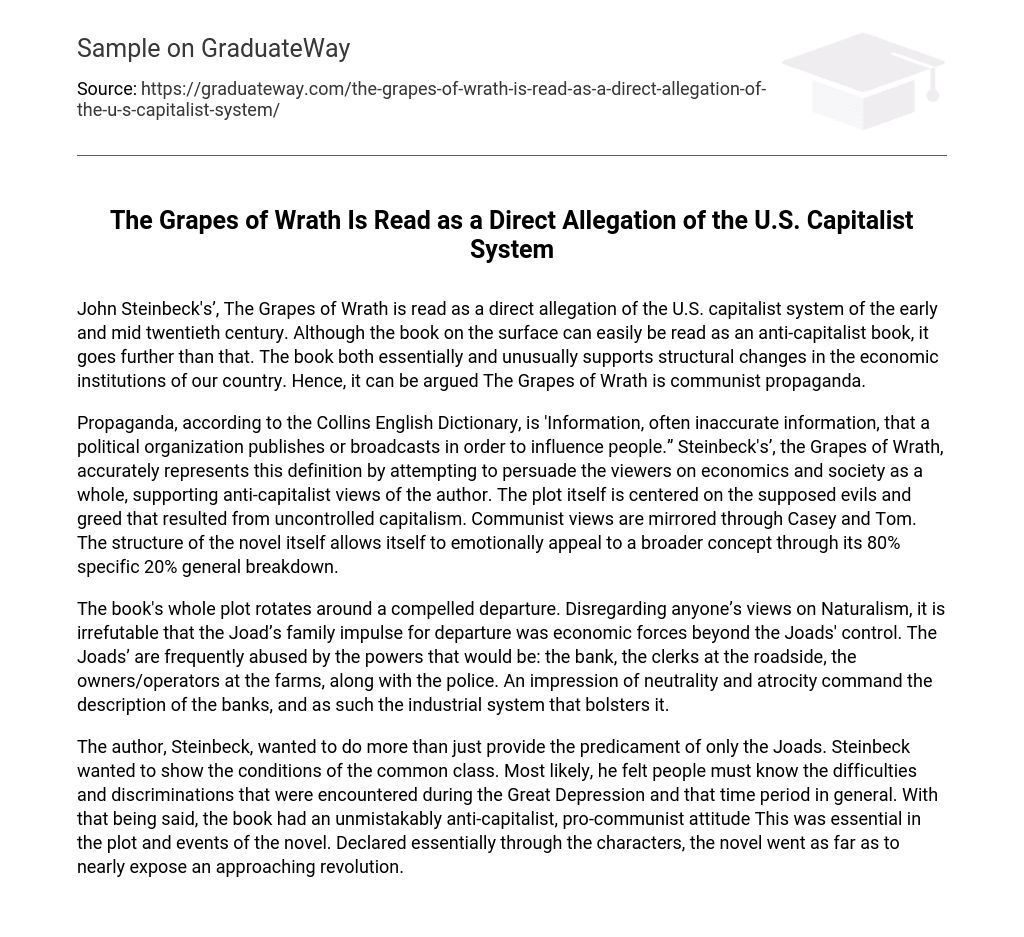John Steinbeck’s’, The Grapes of Wrath is read as a direct allegation of the U.S. capitalist system of the early and mid twentieth century. Although the book on the surface can easily be read as an anti-capitalist book, it goes further than that. The book both essentially and unusually supports structural changes in the economic institutions of our country. Hence, it can be argued The Grapes of Wrath is communist propaganda.
Propaganda, according to the Collins English Dictionary, is ‘Information, often inaccurate information, that a political organization publishes or broadcasts in order to influence people.” Steinbeck’s’, the Grapes of Wrath, accurately represents this definition by attempting to persuade the viewers on economics and society as a whole, supporting anti-capitalist views of the author. The plot itself is centered on the supposed evils and greed that resulted from uncontrolled capitalism. Communist views are mirrored through Casey and Tom. The structure of the novel itself allows itself to emotionally appeal to a broader concept through its 80% specific 20% general breakdown.
The book’s whole plot rotates around a compelled departure. Disregarding anyone’s views on Naturalism, it is irrefutable that the Joad’s family impulse for departure was economic forces beyond the Joads’ control. The Joads’ are frequently abused by the powers that would be: the bank, the clerks at the roadside, the owners/operators at the farms, along with the police. An impression of neutrality and atrocity command the description of the banks, and as such the industrial system that bolsters it.
The author, Steinbeck, wanted to do more than just provide the predicament of only the Joads. Steinbeck wanted to show the conditions of the common class. Most likely, he felt people must know the difficulties and discriminations that were encountered during the Great Depression and that time period in general. With that being said, the book had an unmistakably anti-capitalist, pro-communist attitude This was essential in the plot and events of the novel. Declared essentially through the characters, the novel went as far as to nearly expose an approaching revolution.





